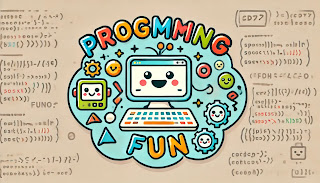Not All Hackers Are Evil
When you hear “hacker,” you probably imagine someone in a dark room, wearing a hoodie, typing mysterious codes while ominous music plays in the background. Right?
Reality check: Some hackers sip coffee in cafés, wear flip-flops, and watch anime while hacking — legally.
So... What Is Ethical Hacking?
Ethical Hacking is the act of testing a computer system, network, or app for security holes — with permission. Yes, it’s hacking... but with a badge.
The goal? To find weaknesses before the bad guys do.
Think of it this way: If cybersecurity is a house, ethical hackers are the builders who intentionally try to kick the doors down — just to make sure they hold up.
The Hat System in Hacking
- White Hat: The good guys. Ethical. Legal. Helpful. Often well-paid.
- Black Hat: The bad guys. Illegal. Dangerous. Sometimes stylish, but not recommended.
- Gray Hat: In-between. Sometimes helpful, sometimes naughty. Basically chaotic good.
What Ethical Hackers Actually Do
- Penetration Testing: Simulate real cyberattacks (legally!)
- Vulnerability Scanning: Detect weaknesses in systems
- Social Engineering: See if staff fall for fake emails (yes, even the “online wedding invitation” trick)
- Reporting: Document findings and suggest fixes
Who Needs Ethical Hacking?
Short answer: Everyone with digital systems.
- Tech companies
- Banks and financial institutions
- Hospitals
- Government agencies
- Even your blog, if you’re paranoid enough
Skills Needed to Be an Ethical Hacker
- Networking knowledge: TCP/IP, DNS, firewalls, ports
- OS skills: Especially Linux. Because real hackers don’t use Word to hack.
- Coding: Python, Bash, JavaScript (for scripting attacks or defense)
- Security tools: Like Wireshark, Metasploit, Burp Suite, Nmap, John the Ripper (scary name, useful tool)
- Ethics and permissions: The biggest difference between a white hat and jail time
Ethical Hacking Certifications
- CEH (Certified Ethical Hacker): One of the most recognized certs
- OSCP: For hard-core pen testers
- CompTIA Security+: Great for beginners
How Much Do Ethical Hackers Earn?
Well… enough to buy fancy keyboards and RGB lighting setups. Depending on experience:
- Entry-level: IDR 8–15 million/month
- Mid-level: IDR 20–30 million/month
- Senior: Could hit 6 digits or more
Some earn via bug bounty programs, reporting vulnerabilities to companies and getting paid (legally and handsomely).
Fun Facts
- Many ethical hackers are ex-black hats who’ve seen the light
- Governments and militaries have their own ethical hacker squads
- Most ethical hacking tools are free and open source (yay for nerds on a budget!)
The Ethical Code
With great hacking power comes great responsibility. Ethical hackers must:
- Always get written permission
- Never steal or alter data
- Report all findings honestly
- Help improve security, not break it
Ethical Hacking = Cyber Heroism
Ethical hackers are digital ninjas. They sneak into systems — not to cause chaos — but to say:
“Hey, your wall has a hole. Want me to patch it?”
If you love tech, enjoy problem solving, and don’t want to end up in jail, this might be your dream job.
Start with:
- Learning the basics of networking
- Trying Linux
- Joining CTF competitions (Capture The Flag)
- Training on HackTheBox or TryHackMe
Because yes, being a hacker is cool — if you're wearing the right hat.


0 Comments:
Posting Komentar